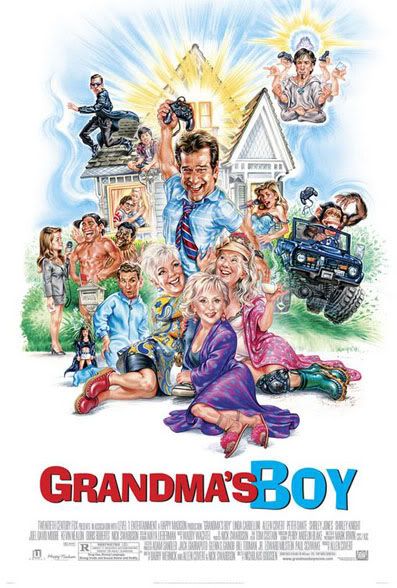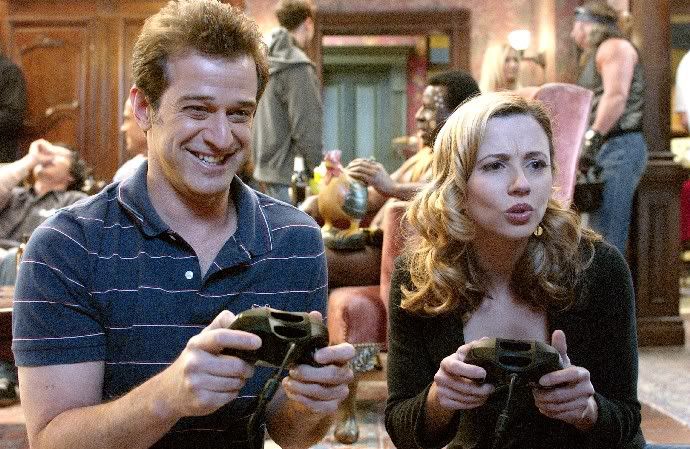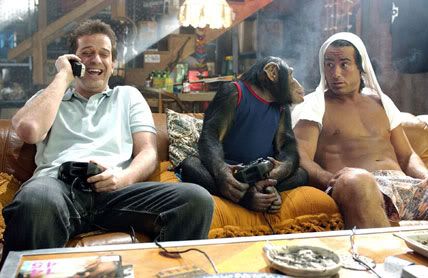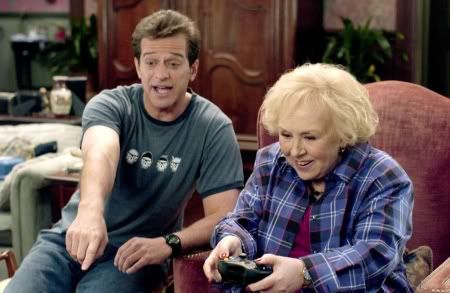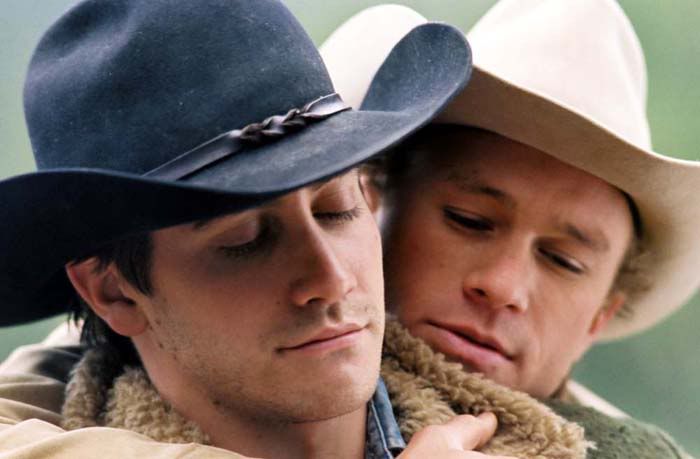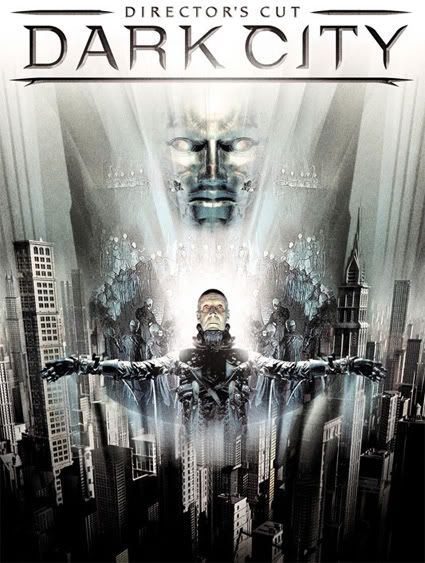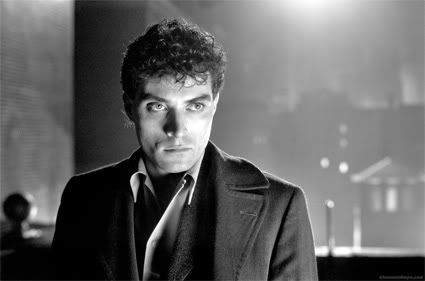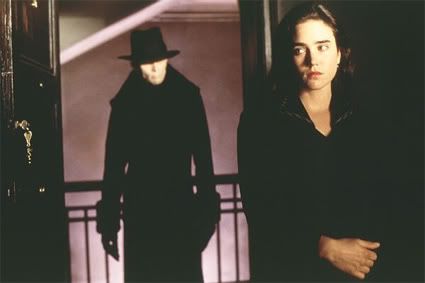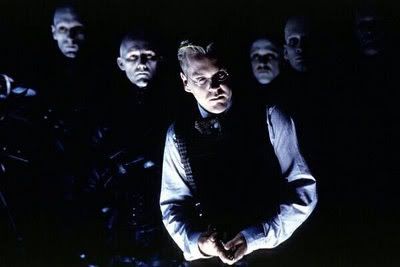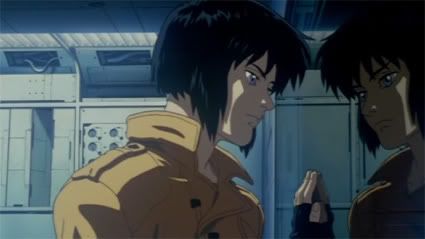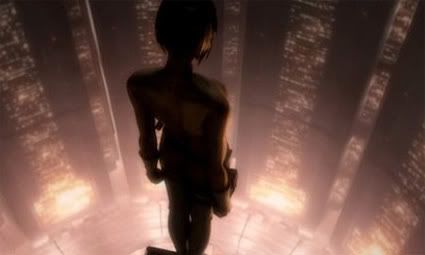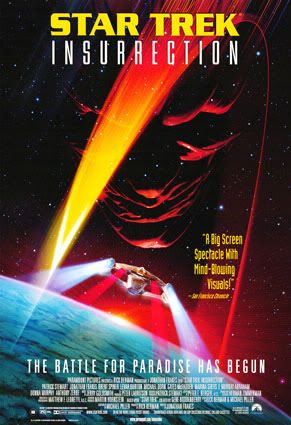
[audio:http://www.blueinkalchemy.com/uploads/departed.mp3]
Among other things, The Departed hammers home the lesson of not judging a book by its cover. For a long time, I considered Leonardo DiCaprio an actor that got by on looks rather than talent. Mostly this was due to how unimpressed I was by the acting in general in Titanic. That happened in a period in his career that saw him in the midst of what the media called ‘Leo-mania’. There’s a reason his Wikipedia page doesn’t even mention The Beach except in passing. However, Leo hooked up with some guy named Martin and they started making movies together. I mention this because The Departed is the first film in which I found myself liking Leo as an actor and got the impression that he was just as disenchanted with ‘Leo-mania’ as I was. Against the stone of Scorsese, DiCapro sharpened himself and has definitely gotten back his edge.
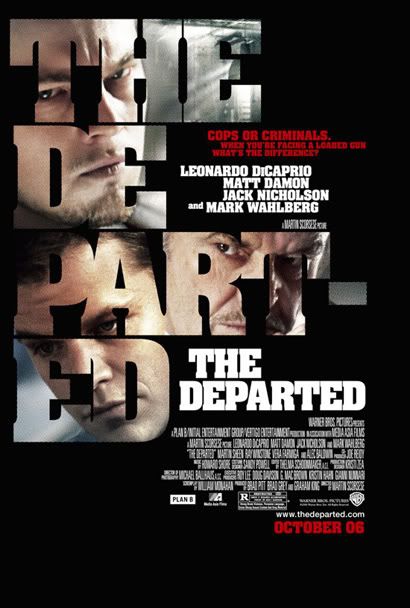
The Departed, set in Boston, follows Leo as Billy Costigan, a very smart young man enrolled in the Police Academy with ties to organized crime, and Matt Damon as Colin Sullivan, a guy from South Boston groomed from a young age by Irish mobster Frank Costello to become a mole within the State Police. Billy is selected to go deep undercover, does time in jail and ends up joining Costello’s crew. What emerges from this setup is a tense game of cat-and-mouse, or perhaps ‘rat-against-rat’, as each of these men move into and out of each other’s lives in their disparate goals: Sullivan to further his career by any means necessary, and Costigan to bring Costello to justice.
Look no further than The Departed to see a director using everything at his disposal in a judicious and brilliant way to bring a story to life. Martin Scorsese is one of the most successful and influential of the ‘movie brats’, a label he shares with Francis Ford Coppola, Brian De Palma, George Lucas and Stephen Spielberg. He shares with his cinematic brethren a unique style and a penchant for focusing on what was once considered a ‘low’ form of cinema – crime drama. While his resume includes interesting but no less powerful departures from this, such as Cape Fear and The Aviator, but when most people think Scorsese, they think Taxi Driver, GoodFellas, Casino and Gangs of New York. The Departed is classic Scorsese, steeped in his style and themes, even if it takes place in Boston instead of his usual New York.
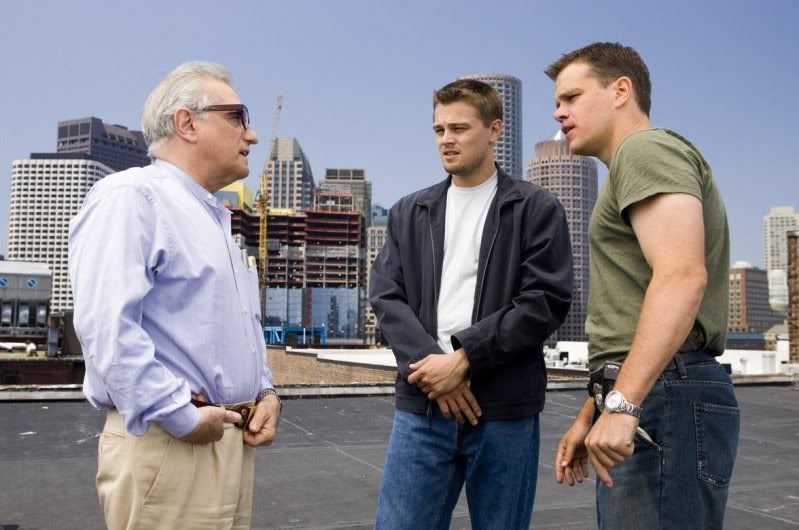
“Feels like something’s missing. Like the Empire State Building. Or a decent pizza joint.”
The city of Boston is almost a character in and of itself in this movie. The neighborhoods, ancestry and even accents come into play now and again. It’s been tempting to do this review in a Bostonian accent, but I’d probably butcher it pretty horribly and I don’t wanna antagonize Red Sox fans. Anyway, Scorsese captures the essence of a town that’s unashamed of its heritage, proud of its people both good and bad, fully invested in being the best it can be and imbuing her people with that same energy, that same impetus. It’s this energy that permeates The Departed and brings out the best in its cast.
I mentioned Leo in the intro because, as I said, he’s very likable in this movie. Many of his actions as one of Frank’s guys are not very nice, but this is a man driven to do what he feels is necessary to get his job done. His dedication is admirable and the stress it places on him is telling. He’s exceedingly, painfully human. So to is Matt Damon, and while his stiffness might be partially due to his acting in general, it could also be attributed to his character’s discomfort around people in true authority and fear of being found out. One of the best decisions Scorsese made, however, was in letting Jack Nicholson off of his leash. As Frank Costello, Jack needs to portray a smart, charismatic and completely unpredictable man used to both the trappings and abuse of power. Scorsese let Nicholson improvise a lot of his scenes, to the point where even Leo didn’t know what to expect of him.
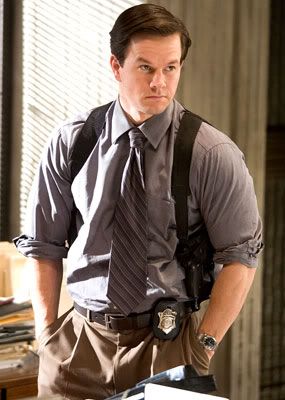
However, if you were to look up “scene-stealing” in the dictionary, don’t be surprised if you see the face of Mark Wahlberg. Never has the phrase “jerk with a heart of gold” so accurately described a character as it does his Staff Sergeant Dignam. Verbally abusive, quick to anger and uninterested in making friends, Dignam is still every bit as dedicated to justice as Costigan and, if you follow his arc all the way through to the end of the film, shows his true colors as a man who forges deep bonds with those he works with in undercover policing. He looks up to Martin Sheen’s Captain Queenan and sees Costigan as something of a protege, a fellow warrior in the trenches. He’s not afraid to pull punches with Billy but he’ll have the man’s back one hundred and ten percent when anybody else even mentions coming close to him. Couple this complexity with authentic Bostonian bluster and charm as well as Wahlberg’s own surprising screen presence and you have what Tropers would call an “Ensemble Darkhorse,” a somewhat minor character who will run away with your total allegiance if you’re not careful.
All of these characters are woven into an excellently paced story. The Departed is a remake on a Hong Kong crime thriller called Internal Affairs, but as I mentioned, this film of Scorsese’s becomes so steeped in Boston that it’s likely a different animal entirely. I haven’t seen Internal Affairs myself, but comparing the two would probably be an interesting exercise, and I’d have to watch this film again, gee darn. If there was any doubt in your mind that this is a superlative film, look at the accolades it’s won. If nothing else, it finally won Scorsese an Academy Award as a director, along with itself winning for Best Picture of 2006, and earning film editor Thelma Schoonmaker and writer William Monahan Oscars as well. Scorsese is quoted as saying that this film won after being nominated so many times, not because he deserved it after a lifetime of cinematic achievement, but because The Departed was “the first movie I’ve done with a plot.”
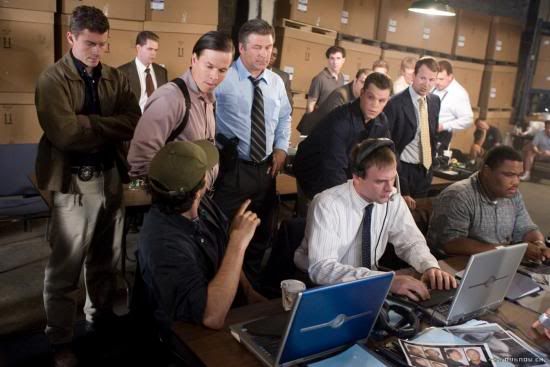
Yes, that’s Alec Baldwin in there. Did I mention this cast is excellent?
In summary, The Departed is one of those rare films that delivers on every level possible. It may seem like a by-the-numbers crime drama at first to some, but with the richness of its characters, the invasive nature of the setting, the canny directing and taut writing, it quickly shows itself to stand on its own. There’s a weight of realism to this story, no particular performance tears us away from being immersed in it and Scorsese’s directing never breaks pace to keep us a part of it. If I were asked on the street to briefly deliver a recommendation for The Departed, I’d have to paraphrase Movie Bob once again: “You hafta ask?? It’s Scorsese! Getcher ass on Netflix and get this movie!”
Josh Loomis can’t always make it to the local megaplex, and thus must turn to alternative forms of cinematic entertainment. There might not be overpriced soda pop & over-buttered popcorn, and it’s unclear if this week’s film came in the mail or was delivered via the dark & mysterious tubes of the Internet. Only one thing is certain… IT CAME FROM NETFLIX.

